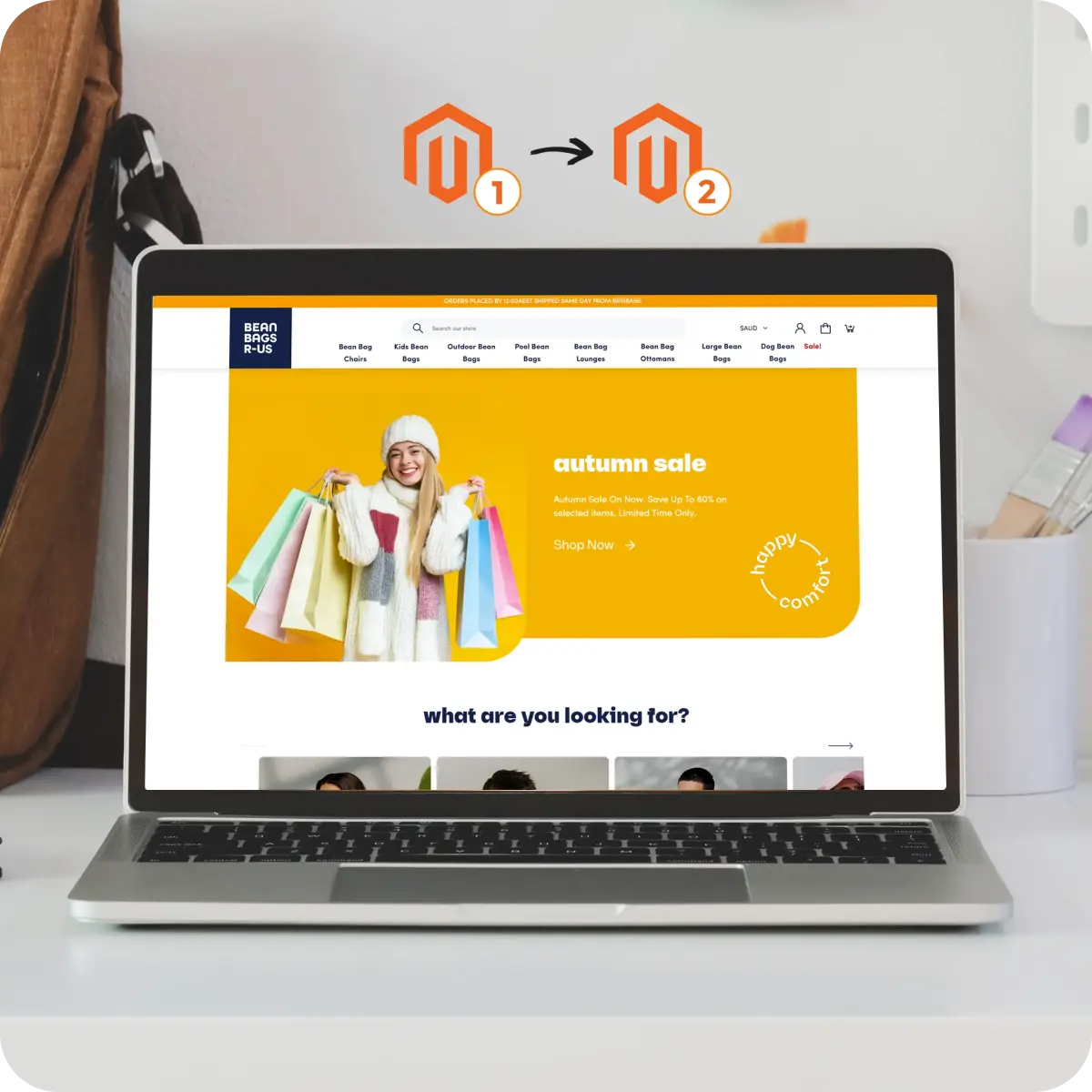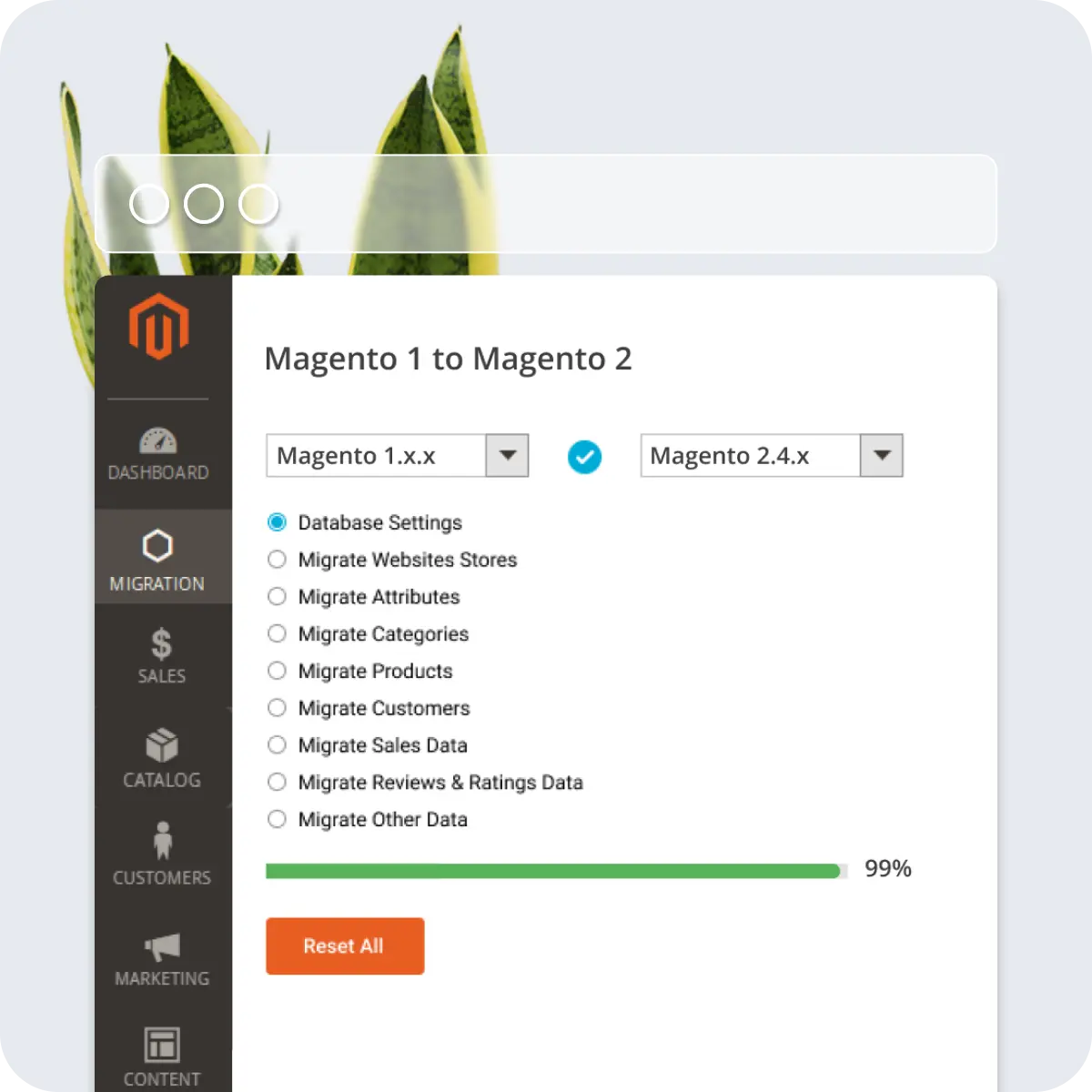Odoo Migration
Service
Looking to leave behind your outdated or disconnected ERP system? Mageplaza’s Odoo migration service helps businesses like yours seamlessly transition from legacy platforms into the unified power of Odoo.
With over a decade of experience in ERP and eCommerce ecosystems, we ensure your Odoo data migration is smooth, secure, and fully aligned with your business goals.

What is Odoo migration?
Odoo migration is the process of moving your business operations from a legacy system or another ERP/CRM software (such as SAP, Microsoft Dynamics, QuickBooks, Zoho, NetSuite, or a custom-built platform) into the Odoo ecosystem.
It involves transitioning not just your data, but also your business workflows, logic, and integrations to take full advantage of Odoo’s all-in-one, modular ERP solution.
Is Odoo data migration risky? Like any major system change, migration comes with challenges, but with the right strategy and expert support, the risks are minimized. At Mageplaza, we use proven methodologies, perform trial runs, and ensure fallback mechanisms to deliver a secure and successful migration with minimal disruption to your operations.

Odoo ERP migration: Why is it important?
Over 70% of growing businesses face challenges with disconnected systems, outdated software, and manual processes. Migrating to Odoo ERP helps your business unify operations, gain real-time visibility, and adapt faster in today’s digital-first economy.
By undergoing Odoo ERP migration, you can:
What our Odoo 18 migration service covers

Data mapping & structured import
Extract your existing data - customers, suppliers, sales, inventory, accounting, etc. - from legacy platforms and carefully map them to Odoo 18's data models, ensuring structure, relationships, and dependencies are preserved. This includes full Odoo database migration to support your future workflows.

Workflow replication in Odoo
We analyze your current operational workflows and recreate them using Odoo 18’s built-in features and automated flows. Where needed, we design custom modules to support edge cases without overcomplicating your system.

Custom module development
If your old platform had unique functions, we rebuild them in Odoo 18 using clean, maintainable code - fully aligned with the latest Odoo development standards and framework improvements.

Inventory & product logic migration
Odoo 18 introduces refined stock rules, batch operations, and replenishment methods. We translate your product structures, stock levels, and procurement rules into Odoo’s advanced inventory logic.

Financial setup & accounting transfer
Ideal for businesses undergoing a QuickBooks to Odoo migration, we configure your chart of accounts, tax rules, and journal structures to match your financial processes.

Third-party integration rebuilding
Any APIs or services integrated with your old system - payment gateways, CRMs, delivery services, etc. - are re-integrated or replaced with Odoo-native or custom connectors.

Team onboarding & user training
We provide training and documentation tailored to your users, so your team can confidently adopt Odoo 18’s new interface, workflows, and real-time dashboards.

Post-go-live support
After migration, we stay with you to resolve real-world issues as they arise. Our team fine-tunes performance, handles configuration tweaks, and supports your users during the transition phase.
Key points to consider before migrating to Odoo

Data backup
Always create a full backup before migration. This ensures your data can be restored in case of unexpected issues.

Database size
Larger datasets demand more migration time and precision. Clean and prepare your data for smoother importing into Odoo.

Security compliance
Ensure all data handling aligns with GDPR and privacy standards. No client data should be stored without consent.

Current system overview
Analyze your existing system's structure and features. The complexity of your legacy platform directly impacts migration effort.

Server environment
Confirm if Odoo will be deployed on a cloud-based platform (e.g., AWS) or self-hosted. This affects configuration and performance.

Downtime estimation
Minimal downtime is the goal, but plan realistically. Schedule the migration during low-traffic hours to avoid disruption.

Odoo version target
Specify the target Odoo version (e.g., Odoo 18). Each version has different APIs and module behaviors.

Third-party integration readiness
List all integrated tools (e.g., payment gateways, CRMs). Check for Odoo connectors or plan custom integrations.

User roles & permissions setup
Define user access levels early. This helps ensure a secure, ready-to-use system right after go-live.
Step-by-step Odoo data migration process
Step 1
System audit & gap analysis
We review your current system and business processes to identify gaps and map requirements to Odoo’s features.
Step 2
Data extraction & preparation
Clean, format, and migrate your existing data into Odoo’s structure, ensuring data integrity and accuracy.
Step 3
Custom module development & feature replication
Custom modules and features are built or adapted to fit Odoo, ensuring all legacy functionalities are preserved.
Step 4
Test migration in staging environment
We perform a test migration in a staging environment to catch issues and ensure everything works as expected.
Step 5
Final migration & go-live support
We complete the migration and provide post-launch support, ensuring smooth operation and user training.

Why choose Mageplaza for Odoo migration service?

Tailor-made Odoo migration strategy
No two migrations are alike. We don’t use cookie-cutter methods. Our team assesses your current system, business structure, and workflows to craft a custom migration roadmap, ensuring Odoo fits your business, not the other way around.
Trusted by global brands
Mageplaza has helped businesses across industries and geographies successfully migrate to Odoo. Our solutions are scalable, future-ready, and built for long-term success.


Training & ongoing support
Post-migration, our job isn’t done. We provide team training, documentation, and technical support to help you get the most out of Odoo from day one.
Odoo migration service FAQs
It typically takes around 2-4 weeks for small Magento projects and 3-6 months for larger ones. However, the timeline depends on your specific requirements. Therefore, it's best to consult with us for more details.
Absolutely. We perform full data backups before any migration begins. Every step of the process, especially data mapping and import, is carefully tested in a sandbox environment to avoid any risk to your original system.
Yes. We use a parallel system to test and implement your new Odoo environment while your existing system stays operational. Once the migration is verified and approved, we switch over during a low-traffic window to minimize or eliminate downtime.
Commonly migrated data includes:
Custom objects or structures can also be migrated with tailored scripts.
It depends on the complexity and volume of your data, the number of modules involved, and your current system’s structure. Most migrations take between 2 to 8 weeks, including testing and user training.
Not at all. We replicate and enhance your critical workflows within Odoo. If your existing platform includes unique features, we’ll rebuild them as custom modules within your new Odoo setup.
Yes. Mageplaza provides user training and detailed documentation to help your team get comfortable with Odoo. We also offer post-migration support to fine-tune the system after go-live.
Definitely. If you’re using multiple tools (like QuickBooks for accounting and Excel for inventory), we can consolidate all your data into one centralized Odoo environment.
For most businesses, yes. Odoo offers powerful, fully integrated modules at a much lower cost than legacy systems. By migrating, you streamline operations, reduce software bloat, and improve team collaboration on a modern, scalable platform.
